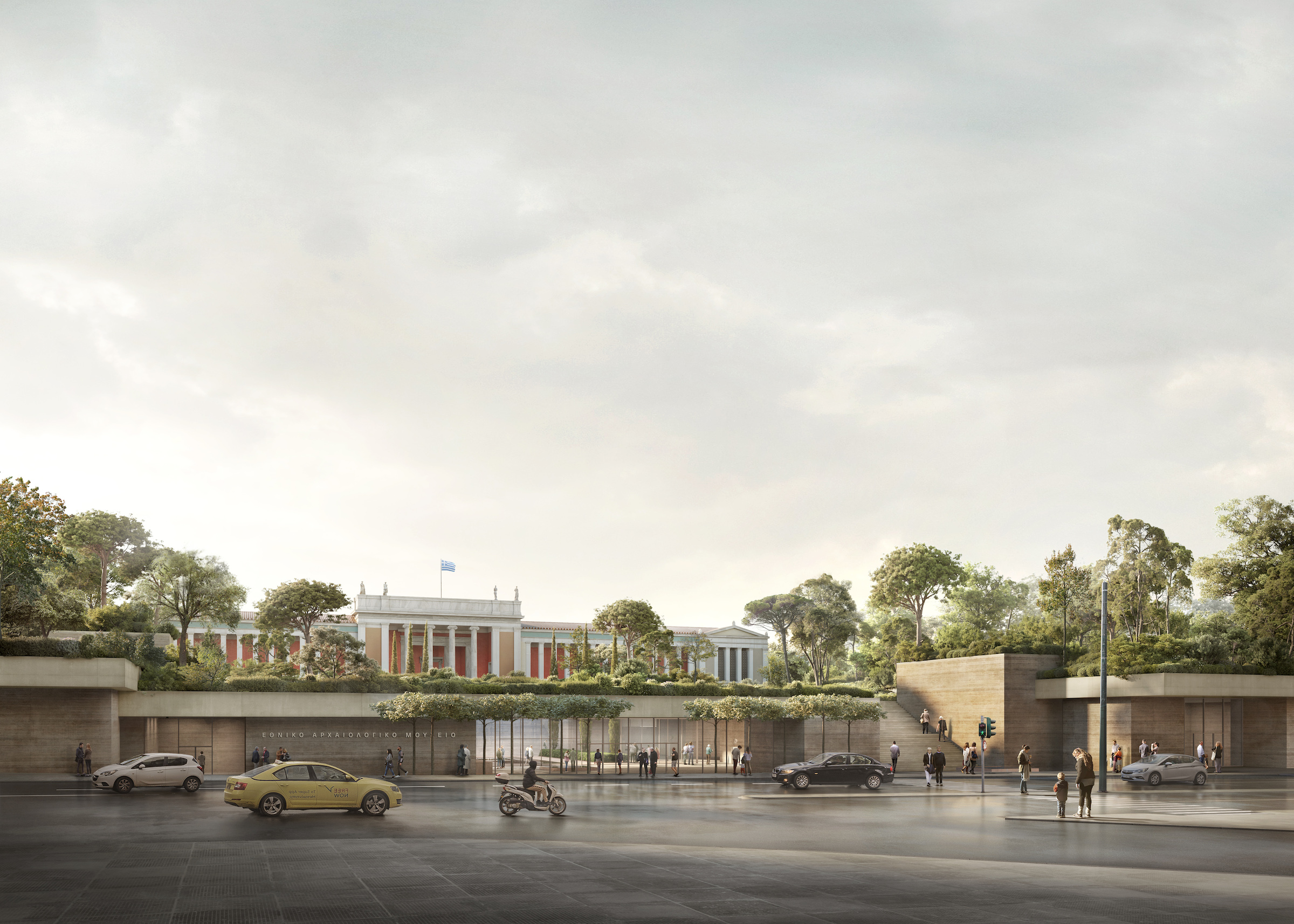Berlin-based David Chipperfield Architects was selected as the winner of the design competition for the new National Archaeological Museum in Athens. The architect's design scheme was developed in collaboration with Wirtz International, Tombazis & Associate Architects, wh-p ingenieure, Werner Sobek, and Atelier Brückner. The proposal was selected from a shortlist of 10 teams.
The project will modernize and expand the original neoclassical museum designed by Ludwig Lange and Ernst Ziller (1866-1874) with new spaces that follow the existing topography of the site. It will add approximately 20,000 sm of space to the existing museum, as well as a rooftop park that will be open to the public. (More museum design coverage from BD+C.)
According to David Chipperfield Architects, "The plinth of the existing building is extended all the way to the street, providing a new setting for the historic landmark building, while adding two floors of subterranean galleries. ... Respecting the building’s historical value, the extension does not aspire to compete with the existing architecture, but forms a harmonious ensemble of spaces, finding a balance between old and new."
Here is the official statement from David Chipperfield Architects Berlin:
David Chipperfield Architects Berlin have won the competition for the National Archaeological Museum in Athens. The International Evaluation Committee unanimously selected the design from a shortlist of 10. The proposal was presented in the presence of Prime Minister of Greece Kyriakos Mitsotakis.
The National Archaeological Museum, located in the Exarcheia district of Athens, houses one of the world’s most important collections of prehistoric and ancient art. The original neoclassical building by Ludwig Lange and Ernst Ziller dates from 1866 – 1874 and has been supplemented with additional buildings over time.
Through refurbishment and extension, the National Archaeological Museum of Athens will be modernised to meet today’s standards of quality, openness and sustainability.
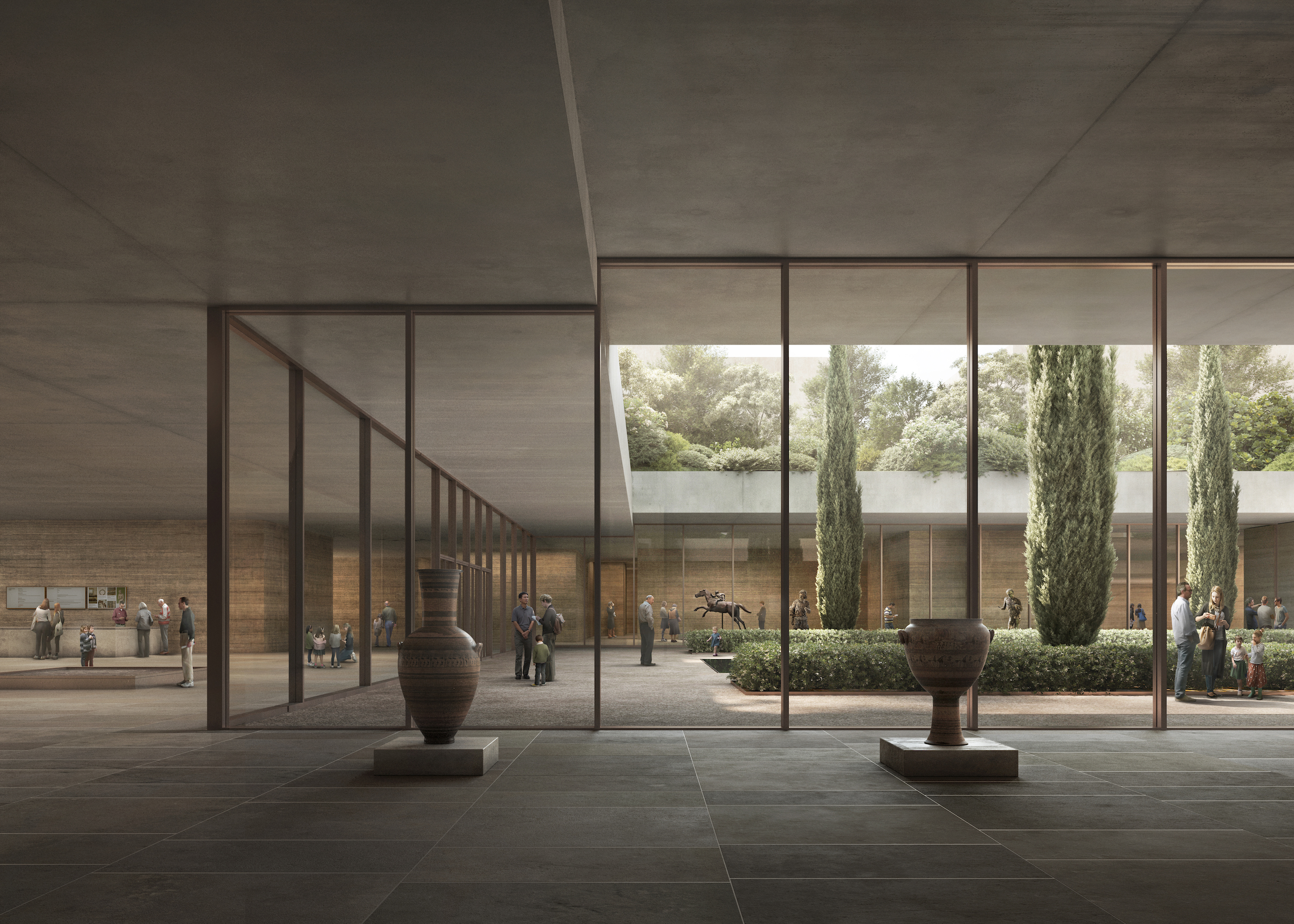
David Chipperfield Architects Berlin draws on the essence of Lange’s original design – a romantic Philhellenic idea of an urban landscape, articulated through lush open areas within the dense city grid – taking the monumental building as a starting point and framing it with nature.
The plinth of the existing building is extended all the way to the street, providing a new setting for the historic landmark building, while adding two floors of subterranean galleries. In one gesture, this generates roughly 20,000 m2 of additional space and a lush green park on the roof that is open to all. Respecting the building’s historical value, the extension does not aspire to compete with the existing architecture, but forms a harmonious ensemble of spaces, finding a balance between old and new.
The design’s logic follows the existing topography of the site: an imposing neoclassical building facing a vast green plaza. The extension will contain the museum’s main public functions – ticket desk, shop, restaurant, auditorium and permanent and temporary exhibitions spaces – which are organised symmetrically, acknowledging the historical architecture. The main entrance is brought forward to street level, reinforcing the museum’s relationship with the city. Through a new façade the museum communicates openly with its urban surroundings, offering passers-by views into the new exhibition spaces.
Upon entering the museum, visitors walk through two floors of continuous, flowing exhibition space that leads them to the existing building. A refined architectural language of pure and clear volumes, diagonal views and rammed-earth walls contrasts with the historical spaces. In combination with a precise play of light and shadow, this evokes the feeling of subterranean caverns, forming a sensitive setting for exhibiting artefacts and sculptures from the collection.
RELATED: BD+C's 2022 Museum Giants Rankings
• Top 70 Cultural Facilities Architecture and AE Firms – Museums and Galleries
• Top 40 Cultural Facilities Engineering and EA Firms – Museums and Galleries
• Top 35 Cultural Facilities Contractors and CM Firms – Museums and Galleries
The museum garden provides a cool, quiet public space elevated above the bustling city. It echoes the ancient Greek ideal of a public gathering space for all citizens. The landscape, designed by the Belgian landscape architects Wirtz International, is rich in texture. The volumes on the lower level allow for the planting of monumental trees on the roof.
Lavish gravel spaces and paths, lawns, groups of Umbrella and Aleppo pines with evergreen Holm oaks and tailored shrub massings reference 19th-century parks. The park is accessible from all directions, and a sunken, sheltered inner courtyard at the heart of the complex binds together the old and new, providing an attractive meeting place for museum visitors and Athenians.
The proposal was developed together with Wirtz International, Tombazis & Associate Architects, wh-p ingenieure, Werner Sobek and Atelier Brückner.
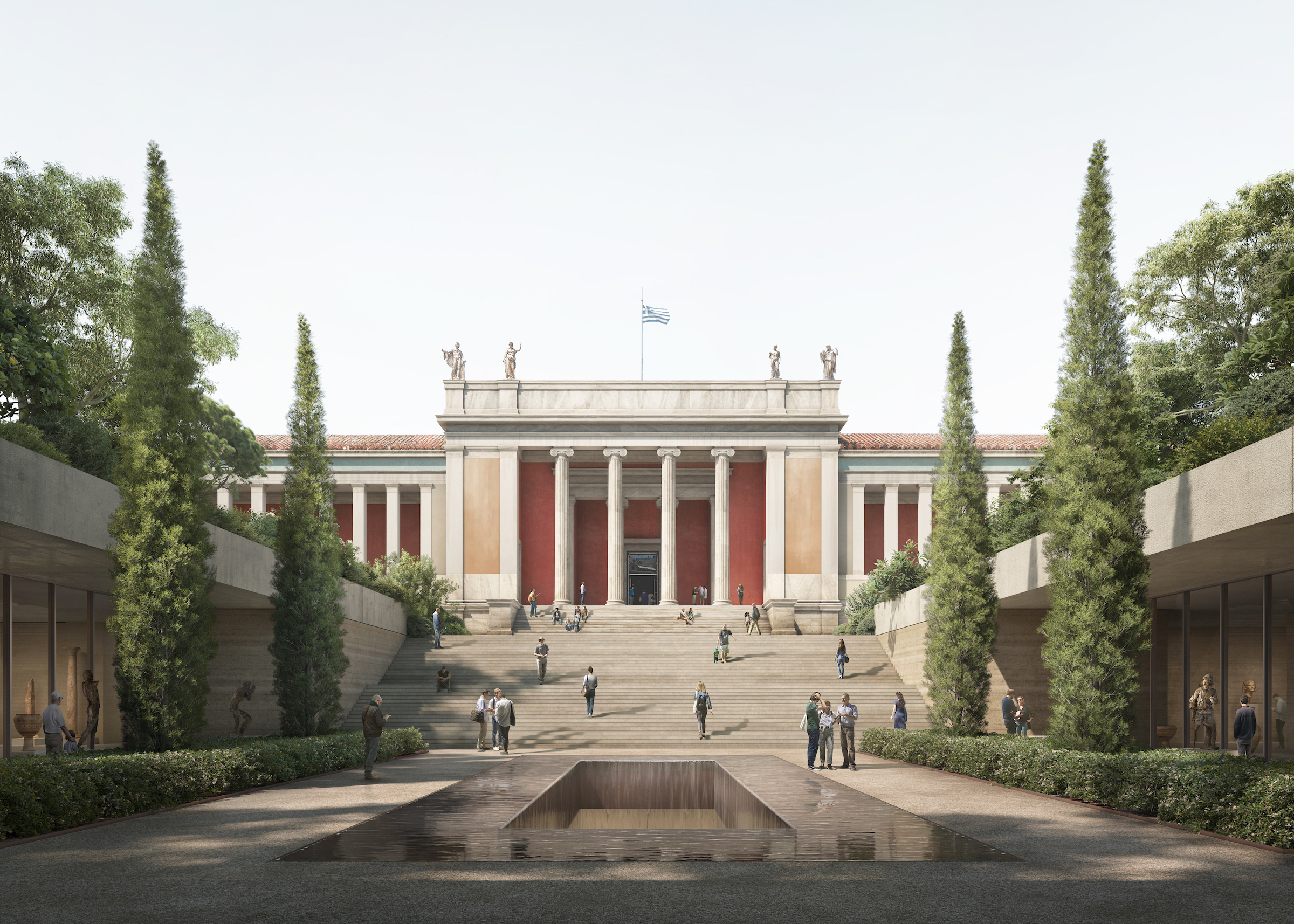
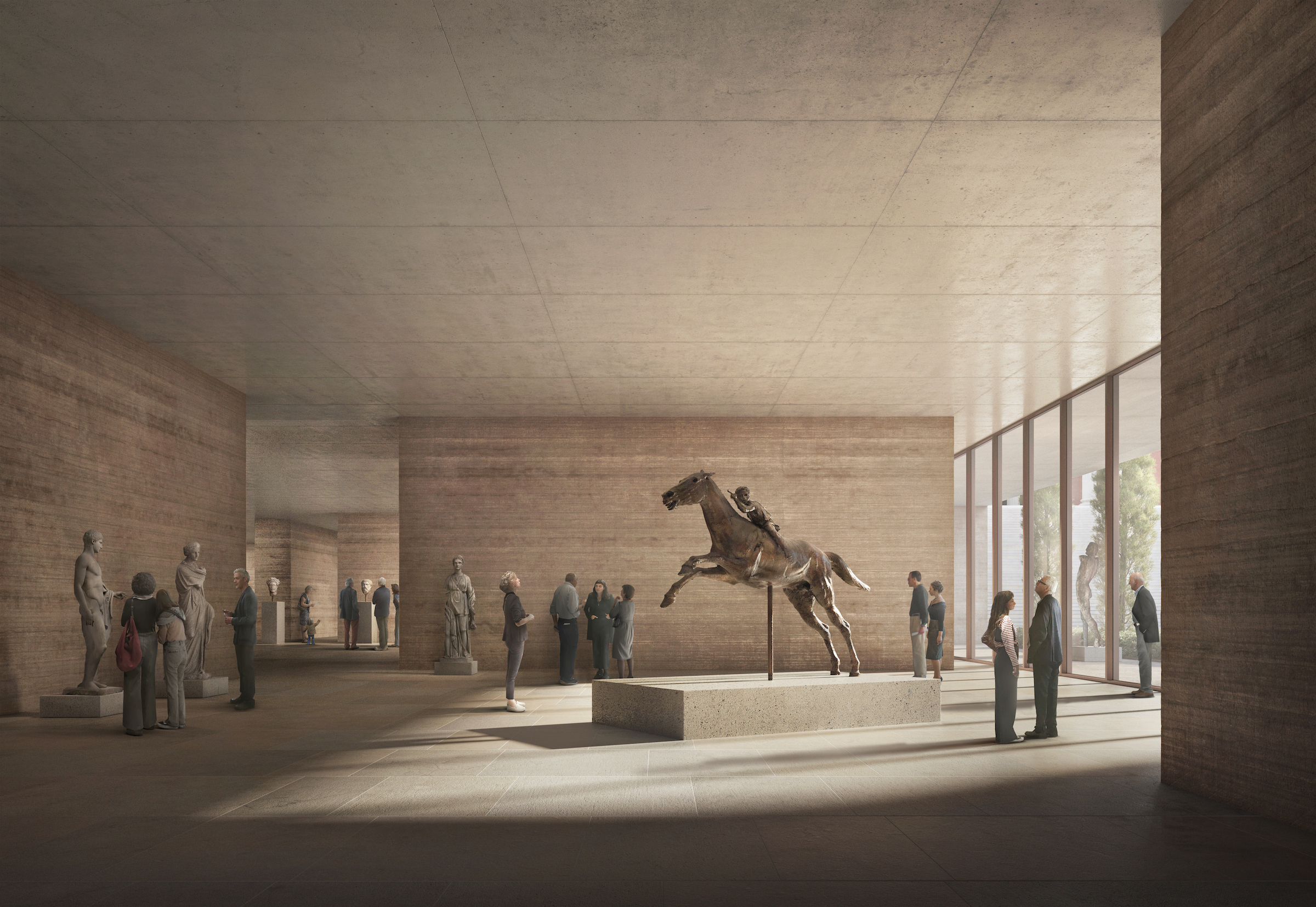
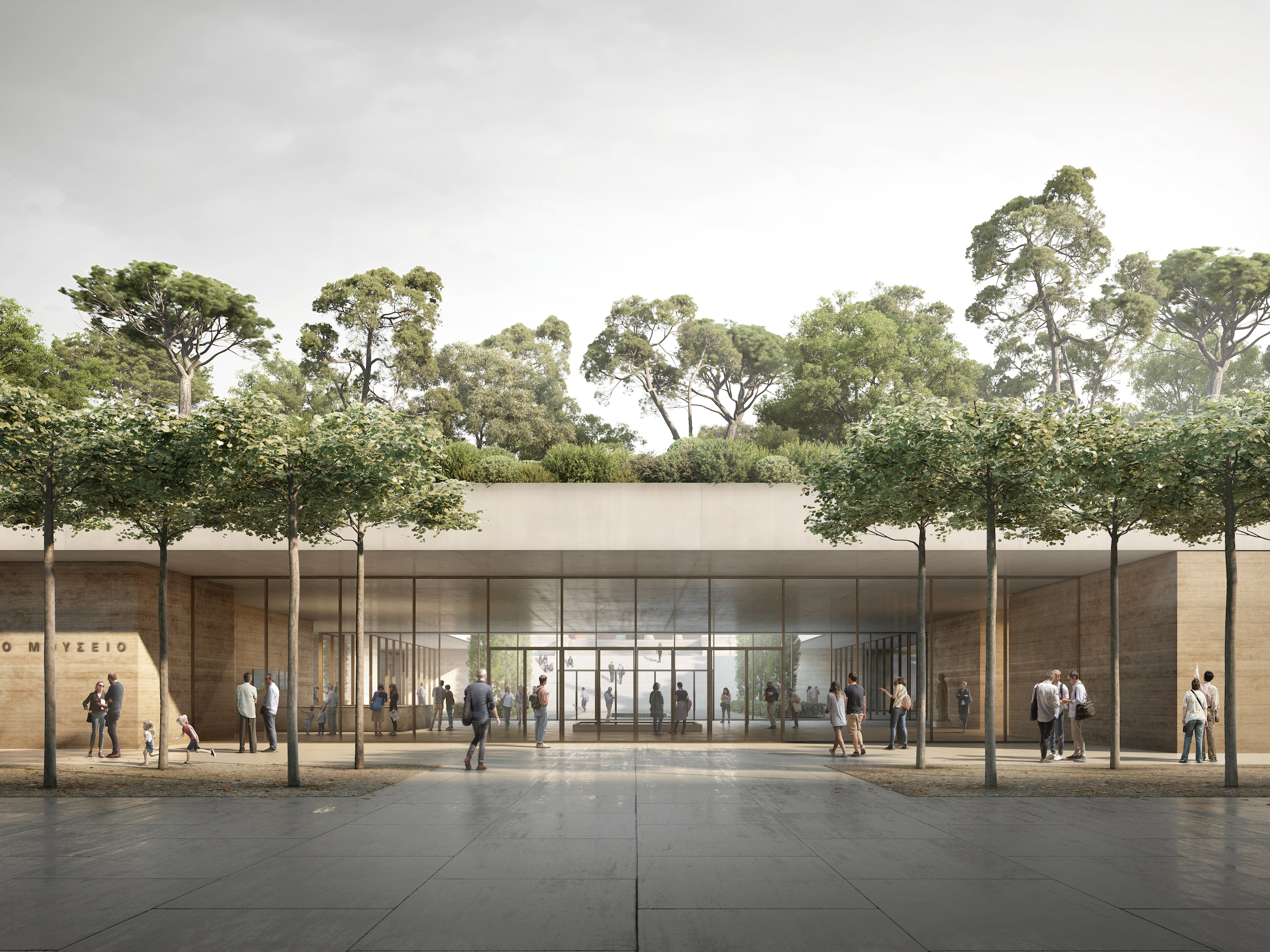
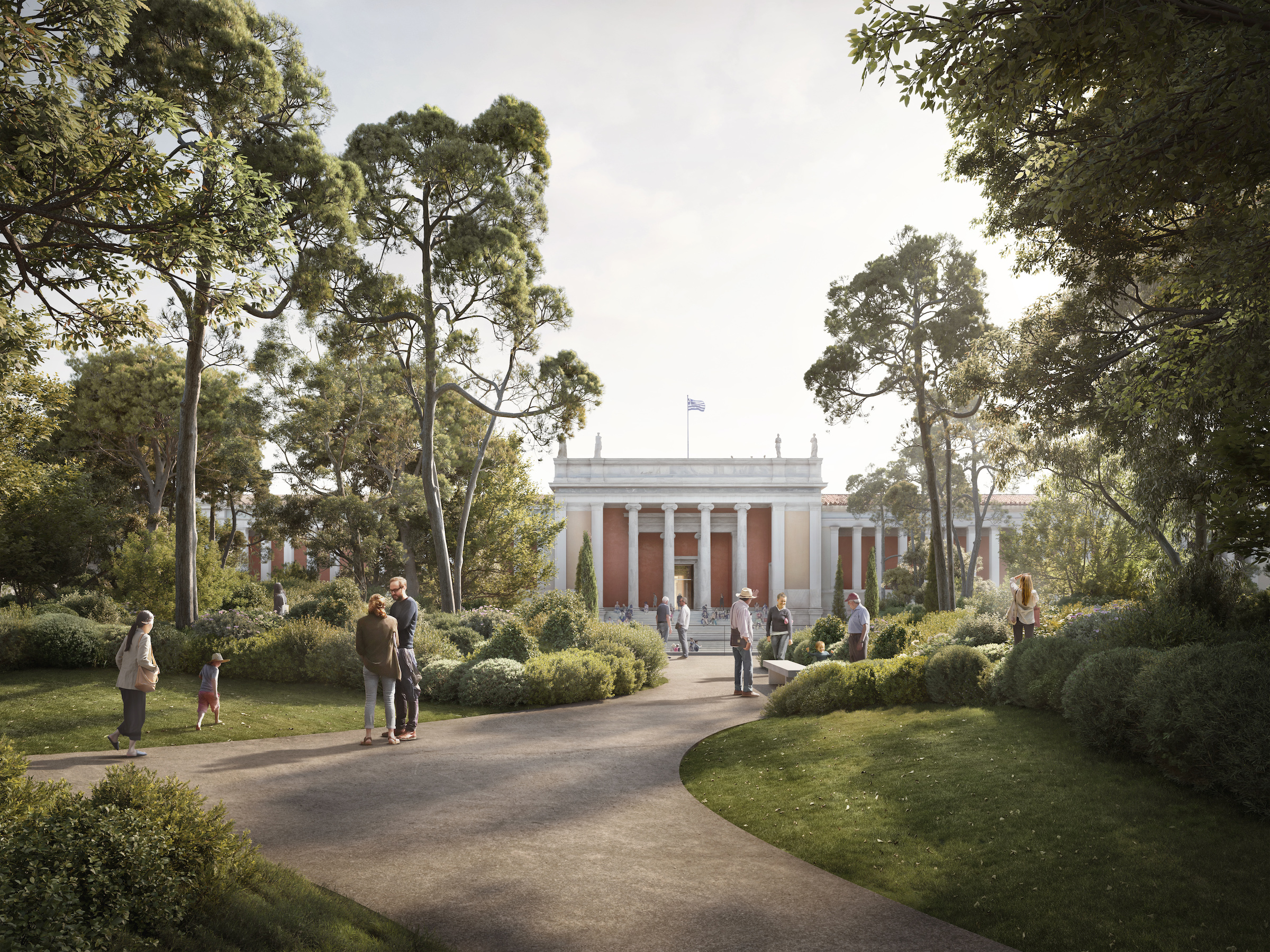
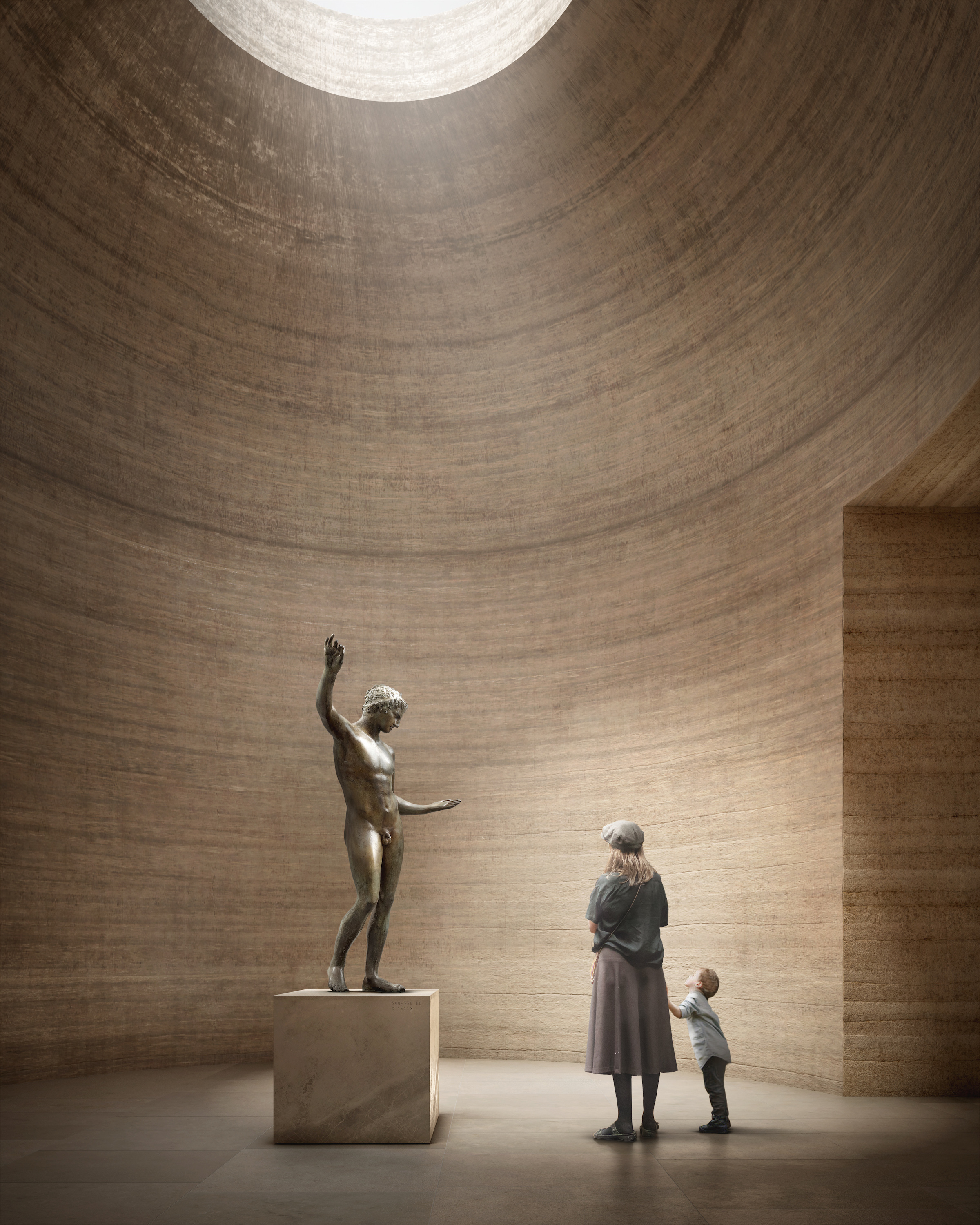
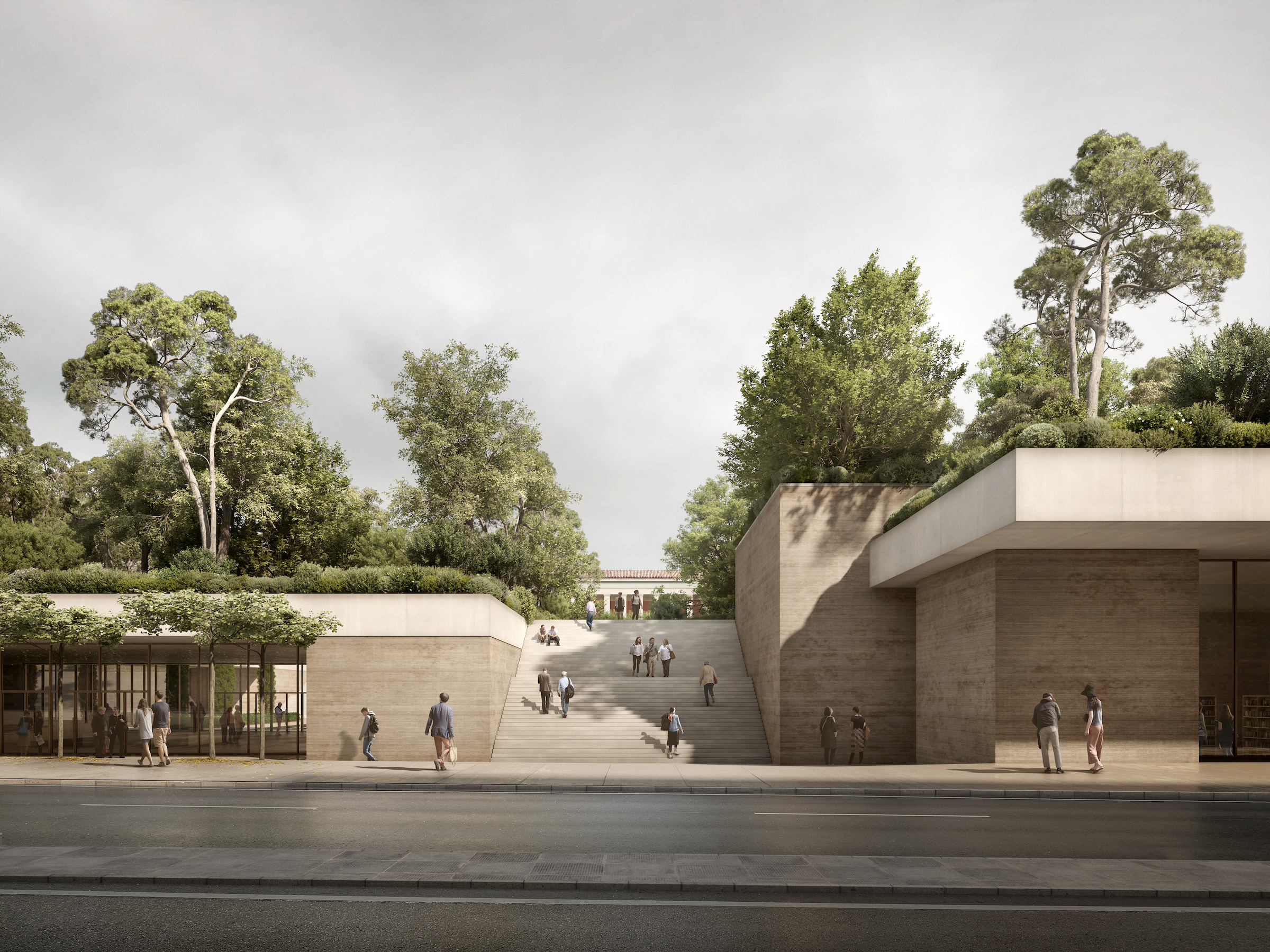
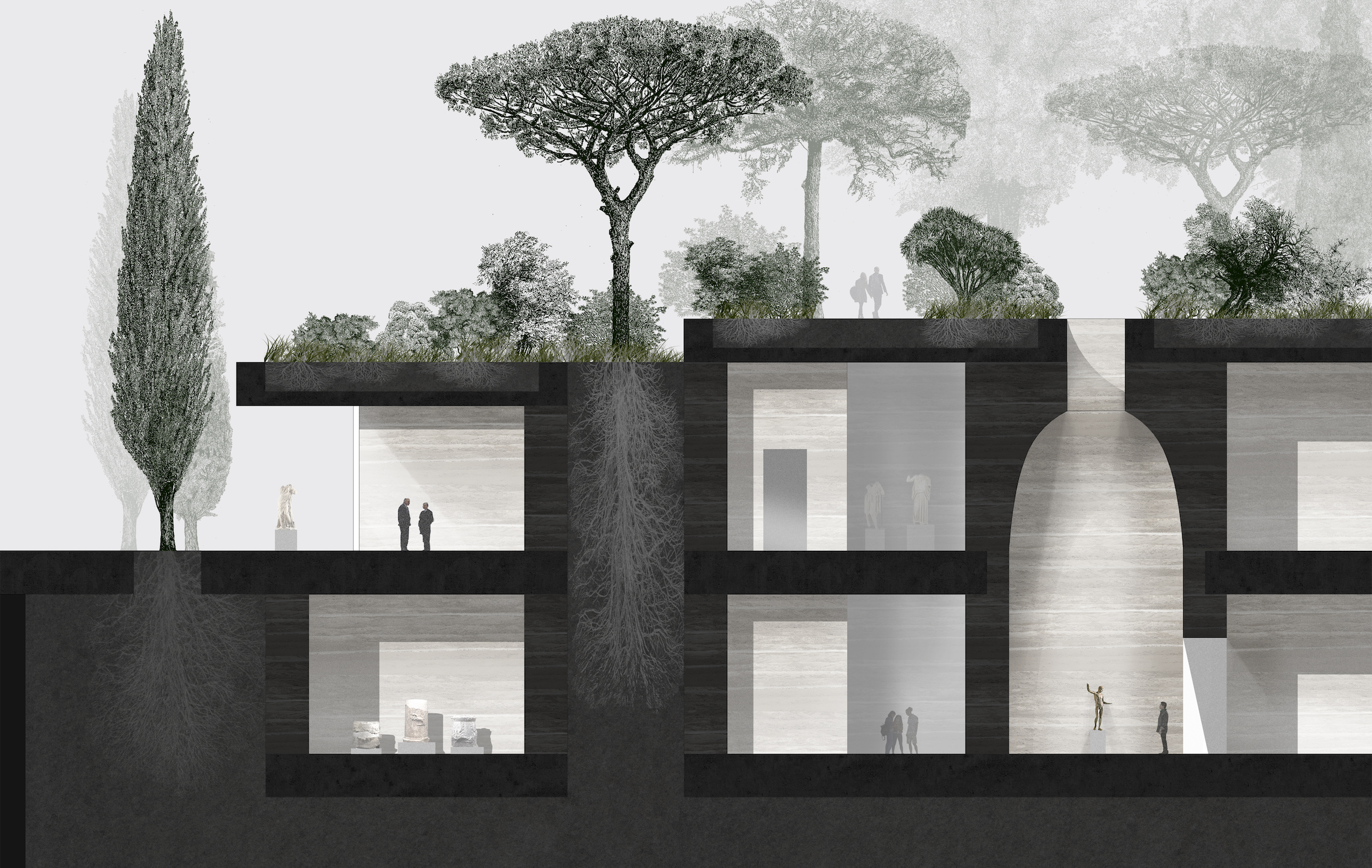

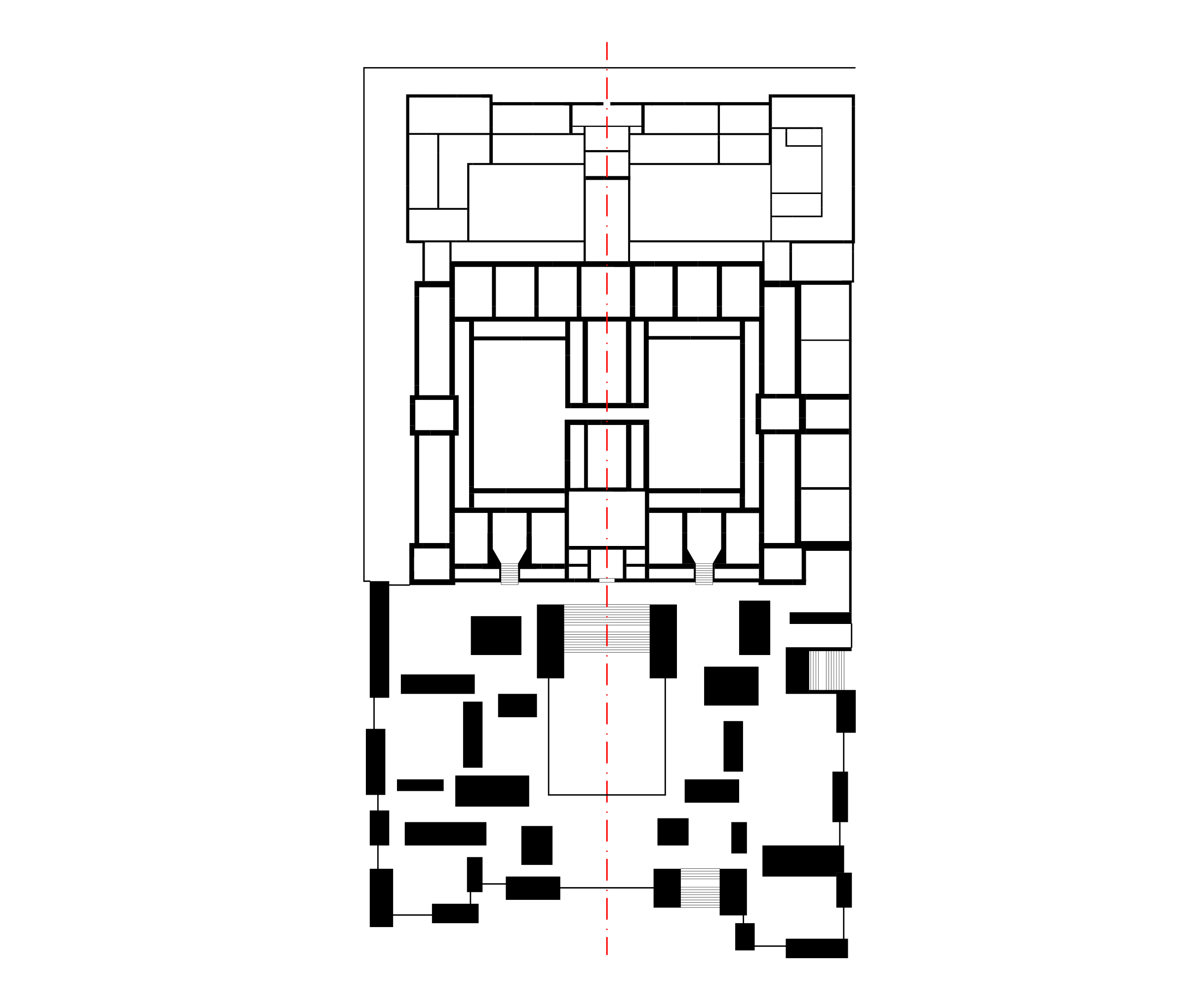
Related Stories
| Aug 11, 2010
Platinum Award: Reviving Oakland's Uptown Showstopper
The story of the Fox Oakland Theater is like that of so many movie palaces of the early 20th century. Built in 1928 based on a Middle Eastern-influenced design by architect Charles Peter Weeks and engineer William Peyton Day, the 3,400-seat cinema flourished until the mid-1960s, when the trend toward smaller multiplex theaters took its toll on the Fox Oakland.


